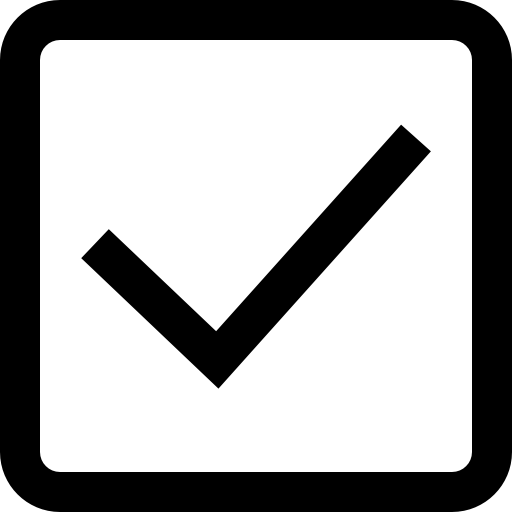
Digital Literacy Resolution
The Burnaby Inter-Agency Council (BIAC) has approved and endorsed our “Resolution to Increase Digital Literacy” in Burnaby for those who have been marginalized by digitization. You can find the full text of this important resolution below.
The BIAC is a non-partisan network of community service providers, aiming to enrich the well-being of the Burnaby community and to improve the delivery of services. Although the resolution was submitted by Literacy Now Burnaby, it was truly a community effort in the making. More than 30 individuals and members of Burnaby organizations pulled together to create this document, amongst them:
- Members of the Digital Literacy Team at the Burnaby Neighbourhood House
- Members of the Faculty of Education at the Simon Fraser University
- Poverty advocates at Burnaby Community Services
- Librarians of the Digital Literacy Strategy Team at the Burnaby Public Library
- Literacy Outreach Coordinators in the Lower Mainland
- Members of the Primary Care Networks
- Staff of the City of Burnaby
- Members of the Digital Literacy Team at ISSofBC
- Members of the Literacy Now Burnaby Task Group
- And community members without organizational affiliation.
Resolution to Increase Digital Literacy
Opening Statement
Access to information, education, resources, and services is a human right. Essential components of life are increasingly moving online. This makes access to reliable technology and internet services crucial. However, this remains difficult or impossible for too many members of our society, resulting in their rights as citizens effectively being denied as, for example, they are unable to access disability benefits, income assistance, etc. As such, there is an urgent need to address:
- Affordability and access to a secure Internet connection for all;
- Equitable access to working devices through which to access the internet; and
- Ongoing access to digital literacy skills, so that residents can engage online in a critical, informed, safe, and effective manner.
There is a necessity for collaboration on the part of government ministries at different levels in partnership with community groups to address all three components in the spirit of digital equity and justice as human rights issues.
Background
Digital literacy is the knowledge and ability of individuals to access, evaluate, understand, manage, and create information online1, as well as to communicate with others through digital technologies2. Digital literacy includes the skills to think critically about the uses of technology in society, and adapt to changes brought about by such technologies in safe and appropriate ways3. Digital literacy allows people to use technology to solve problems, interact with technology in creative and innovative ways, and participate in a digitally inclusive environment. Thus, digital literacy as conceptualized by the writers of this resolution, explicitly contains all aspects of digital citizenship, i.e. digital access, equity, inclusion, safety, and justice.
The COVID-19 pandemic sharply illustrated the extent and consequences of digital exclusion experienced by many Burnaby citizens. Residents are excluded from vital access to employment, housing, health, and recreation, because this information has moved online4. The housing crisis intersects with digital exclusion in that many residents must trade internet access for food and higher rents. Low-rent housing continues to be built without attention to internet access, and many residents in subsidized housing do not have access to the internet in their residences.
Public Wi-Fi and secure Wi-Fi in libraries and other public spaces are vital, but they cannot substitute secure, high-speed access in people’s homes5. Adults applying for jobs cannot wait for libraries to open to submit their resume in a time sensitive job or housing search; school children and adults should not need to leave their homes to complete homework while others are able to stay in the comfort of homes; nor can unsecured Wi-Fi at fast food restaurants become the default public access sites for digitally excluded citizens when libraries are closed.
The conceptualization of a digital ecosystem situates digital literacy not as the unique responsibility of the individual, but in relation to the rights and responsibilities of governments, agencies, and other service providers to create the conditions whereby all citizens have access to essential services and information that are now almost exclusively available on the internet. Burnaby should strive towards collective responsibility for the digital ecosystem.
This approach to digital literacy will support citizens to use the internet for access to employment, housing, health, and recreation, and doing so in a safe manner, protecting one’s privacy and personal data, developing critical information literacy that orients adults to misinformation, disinformation, and security online6.
It is noteworthy that BC has developed a framework for digital literacy for K-12 education, but there is no such framework or commitment to digital literacy education for adults. Nevertheless, nonprofit organizations and libraries have stepped into this vacuum to create curricula and programs, although these efforts are dependent upon short-term inadequate funding, are not evenly distributed across all communities, and are not widely accessible to citizens who speak languages other than English.
For envisioning the needs of empowered digital citizens, three aspects of digital inclusion should be included:
- Access: Affordable, high quality and secure internet access and working devices.
- Useability: Appropriate design, privacy rights, and being free from surveillance.
- Digital Literacy: Skills and knowledge to interact online.
All three elements are integral to a just digital ecosystem, and a shift in current approaches and policies with respect to adult literacy education is required7:
- Digital literacy is contingent upon an affordable Internet, access to working devices, and to appropriate designs attuned to the needs of different citizens as they exercise their rights online;
- “One-off” programs and pilots are not sufficient to protect and enhance human and citizen rights in digital environments. Given continuous change in digital environments, digital literacy education must be ongoing;
- Digital literacy is tied into other forms of inequality, and integral to all adult education work in Burnaby, including CALP, ESL, LINC, employment programs, etc.
Currently, access to digital literacy programs are subject to short-term funding and not part of a cohesive long-term digital strategy. A coherent, collaborative, and intentional digital literacy equity policy is necessary. This is the vision and goal of the Resolution to Increase Digital Literacy. We hope that in adopting this resolution actors can work together to create an intentional, cohesive, and fully funded plan for a digital ecosystem in which Burnaby residents can exercise their citizenship and human rights.
Recommendations
1. Develop an adult and community digital literacy strategy for Burnaby.
2. Expand programs that support Burnaby residents in the acquisition of digital literacy skills and embed digital literacy in the everyday work and programs of adult education.
3. Increase access to no-cost and low-cost devices for Burnaby residents through:
- lending programs like Burnaby Public Library’s lendable technology collection
- partnership with BC Technology for Learning to increase access to low-cost devices
- hold tech donation days to increase the supply of low-cost devices
4. Increase provision of affordable internet in homes and communities.
Advocacy Action Plan
- BIAC engages the City of Burnaby in conversations about affordable internet in homes and communities in partnership with provincial and federal governments.
- BIAC advocates that new housing builds for low-income citizens are wired for broadband internet, and that BC Housing installs broadband internet in their housing programs.
- BIAC organizations join with anti-poverty groups to advocate for social assistance rates to include internet fees as a basic and essential expense.
- BIAC advocates with the mayor’s office to designate and proclaim a Burnaby Tech Donation Day to create awareness in community members.
- BIAC member agencies work together to:
- seek funding and apply for grants to create and re-fund programs for one-on-one tutoring and mentoring.
- create a broad-reaching network of digital literacy training and professional development opportunities for staff.
- work with Literacy Now to identify digital literacy programs and gaps in Burnaby.
- facilitate train-the-trainer courses in digital literacy approaches, so that organizations can embed digital literacy into their existing education work.
- include computer hardware, materials, and learning resources for clients in funding proposals.
- partner with organizations such as BC Technology for Learning to place low-cost devices in the hands of residents.
Resolution
Whereas digital literacy is a fundamental right, closely connected to internationally-recognized human rights, and central to the rights of Burnaby residents;
Be it resolved that Burnaby Inter-Agency Council endorses the Resolution to Increase Digital Literacy.
Be it further resolved that Literacy Now Burnaby and its partner organizations actively advocate for and raise the profile of digital literacy access, equity, inclusion, safety, and justice in Burnaby.
Terms
Submitted by Lukas Park, Literacy Now
Submitted on Nov 8, 2024
Reviewed on Nov 8, 2024
Distributed on Nov 12, 2024
Considered on Dec 5, 2024
Endorsed on Dec 12, 2024
Expires on Dec 5, 2027
Approved for consideration

Endorsed

For questions and details, please reach out to the Literacy Outreach Coordinator.
Download the PDF version:
References
- Government of British Columbia. “BC’s Digital Literacy Framework.” https://www2.gov.bc.ca/gov/content/education-training/k-12/teach/resources-for-teachers/digital-literacy. Last updated April 1,
2022. ↩︎ - Law, Nancy, David Woo, Jimmy de la Torre, and Gary Wong (UNESCO Institute for Statistics). 2018. “A Global Framework of Reference on Digital Literacy Skills for Indicator 4.4.2.” University of Hong Kong: Centre for Information Technology in Education (CITE). ip51-global-framework-reference-digital-literacy-skills-2018-en.pdf. ↩︎
- ABC Life Literacy Canada. 2024. “Digital Literacy.” https://abclifeliteracy.ca/digital-literacy/ ↩︎
- Kupfer, Matthew (CBC News). 2016. “CRTC Declares Broadband Internet Access a Basic Service.” Last modified December 22, 2016. https://crtc.gc.ca/eng/archive/2016/2016-496.htm. ↩︎
- Smythe, Suzanne. 2020. “Digital Equity and Community Solidarity During and After COVID-19: Policy Note.” Last modified on April 21, 2020. https://www.policynote.ca/digital-equity/. ↩︎
- Media Awareness Network. 2010. “Digital Literacy in Canada: From Inclusion to Transformation.” Media Smarts: Canada’s Centre for Digital and Media Literacy. Last modified July 7, 2010. ↩︎
- Huynh, Annalise, and Malli Nisa. 2018. “Levelling Up: The Quest for Digital Literacy.” Last modified June 19, 2018. https://brookfieldinstitute.ca/levelling-up/ ↩︎
